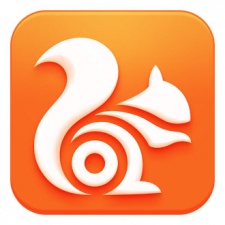The big gap in the Chinese games market is app distribution.
In one sense, the absence of Google Play has been a disaster for developers.
But in another way, it's enabled local companies to build many different app distribution and promotion channels, often out of surprising starting points.
One such is UCWeb, which has grown its app distribution business from the popularity of its mobile browser.
Indeed, it's proved so popular that Chinese ecommerce giant Alibaba has just announced it's acquired full control over the company in a deal that valued UCWeb at more than $4 billion.
Prior to that deal being announced, however, we spoke to UCWeb's Ben Jiang to find out more about its business.
Pocket Gamer: Can you give a brief overview of how UCWeb built up its distribution platform, and specifically why a browser company has become important as a game platform?
Ben Jiang: UCWeb started 10 years ago as a mobile browser maker. Over the course of the past decade, we've come a long way to become the largest third party mobile browser in the world by user base and has expanded into new territories.
Now, in addition to the cornerstone browser product offering, which usually is perceived as the gateway to mobile internet, UCWeb has also expanded to areas like app distribution, mobile game cooperation, mobile search, etc.
For UC 9Game, one of our underlying strength in terms of game distribution is our Clan system that deeply engages players.
In terms of distribution platform and game platform, since UC is the largest third party browser in China with dominant market share (65.9 percebt according to iResearch), in China a lot of browser users fire up the browser to look up for mobile entertainment content, including games.
So leveraging this use pattern, we are able to drive relevant traffic to our game platform UC 9Game, thereby fuelling its growth. And now 9Game has grown to be the largest Android online game cooperation platform, particularly thanks to our engaging Clan system.
So, to conclude, we saw both browser and app/game distribution business as gateway businesses - a gateway to give users quick and convenient access to mobile internet content.
We started out as a browser company, but now have evolved into a worldwide-leading platform of open services with multiple offerings and one simple aim - to give user fast and easy access to the best mobile internet experience, be it information or games.
The Chinese mobile market is currently undergoing a transition from feature phones to smartphones so how does that affect your business?
Feature phone users now represented only a small proportion of our total users. We rode on the smartphone proliferation wave to grow our smartphone users drastically.
And since smartphones have more functions and more revenue opportunities, we're actually quite positive on the shift and are aligning our efforts to it. For instance, a lot of new features built into our browser/mobile search service utilize smartphone sensors (camera, microphone) to enhance the user experience.
How international is your business in terms of the split between Chinese and international users?
Out of our 500 million users, more than 150 million are from overseas.
How is this reflected in terms of OSes, and what's the split between native and browser games on your platform?
In general, our users are spread across the major platforms, although Android is the largest platform with over 300 million users worldwide.
We operate more than a thousand titles on our platform and almost all of them are native and online games.
Currently we operate more than a thousand titles on our platform and almost all of them are native and online games.
How closely do you work with phone OEMs? Are embed deals very important for you?
We do have preinstalled deals with phone makers. However, given our strong brand recognition - we're a top 3 most popular app in China - now more than 50 percent of our new downloads are driven through word-of-mouth.
What's the process for a game developer who wants to work with you?
A content provider will submit a titles for review. We'll give our feedback and do a small beta test with users to provide feedback. The developer then implements the feedback, integrates our SDK and enters into a cooperative agreement. Then we can start and public text and finally release the game.
Once a game is released, our operation team works closely with the content provider to constantly upgrade/modify games based on user feedback, as well as initiating in-game promotional events to improve user stickiness and add additional features.
You've said you generated RMB 400 million (around $65 million) for developers, so how does your payment system work?
We have integrated all kinds of payment services including Alipay, Yeepay, China UnionPay, and Shenzhoufu, as well as carrier billing (mostly for non-online games).
We entered into strategic partnership deal with China UnionPay and Alipay to provide users with mature and hassle-free payment methods.
It seems that there's increasing competition in terms of Chinese app distribution - Tencent, Baidu, Qihoo 360, Alibaba, carriers etc - so how does UCWeb fit into this picture and how are you looking to stay ahead of the competition?
Generally, there's competition in every sector; it's healthy to push that sector to grow. We believe the market is big enough for participants with their own distinctions.
For UC 9Game, one of our underlying strength in terms of game distribution is our Clan system that deeply engages players. Players don't just see us as a distribution channel, where you merely download the app and bill the virtual items. With us, they find a community for the player, of the player and by the player.
How important do you think technologies like HTML5 and webGL will be in future for you?
We keep close tabs on new technologies. That said, currently almost all our games are native apps.
Thanks to Ben for his time.

















